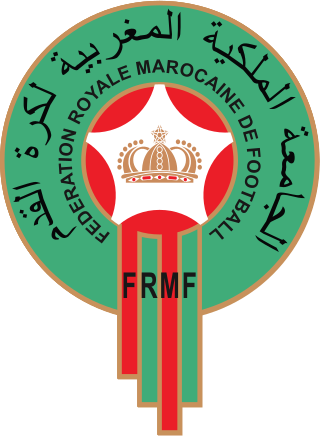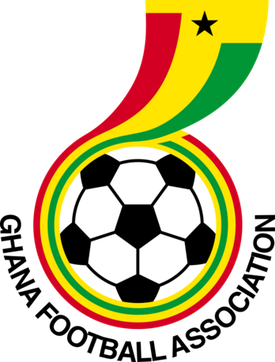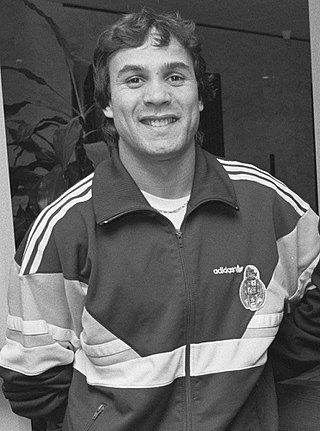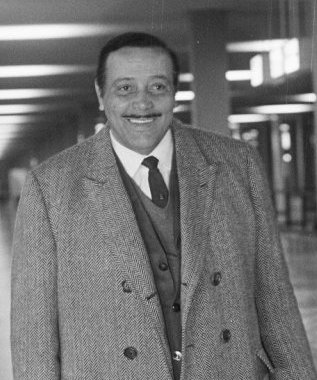Related Research Articles

Rangers International Football Club, commonly known as Enugu Rangers, is a Nigerian professional association football team founded in 1970. Based in Enugu, the Rangers play their home games at the Nnamdi Azikiwe Stadium. Enugu Rangers are one of the three oldest clubs in Nigeria, the other two being Bendel Insurance and Kano Pillars, and the only Nigerian club never to have been relegated from the Nigeria Premier League.

The Nigeria national football team represents Nigeria in Men's international football. Governed by the Nigeria Football Federation (NFF), they are three-time Africa Cup of Nations (AFCON) winners, with their most recent title in 2013. In February 2024, the Nigerian national football team was ranked 28th in the FIFA rankings. The team has qualified for six of the last eight FIFA World Cups, missing only the 2006 and 2022 editions. They have reached the round of 16 on three occasions. Their first World Cup appearance was in the 1994 edition. The team is a member of FIFA and Confederation of African Football (CAF).

The Egypt national football team, nicknamed "Pharaohs", represents Egypt in men's international football, and is governed by the Egyptian Football Association (EFA), the governing body of football in Egypt.

The Morocco national football team represents Morocco in men's international football, and is controlled by the Royal Moroccan Football Federation, the governing body for football in Morocco.

The Algeria national football team represents Algeria in men's international football, and is governed by the Algerian Football Federation. The team plays their home matches at the 5 July Stadium in Algiers and Miloud Hadefi Stadium in Oran. Algeria joined FIFA on 1 January 1964, a year and a half after gaining independence. They are the current champions of the FIFA Arab Cup.

The Ghana national football team represents Ghana in men's international football. The team is named the Black Stars after the Black Star of Africa in the flag of Ghana. It is governed by the Ghana Football Association, the governing body for football in Ghana. Prior to 1957, it played as the Gold Coast.

The Ivory Coast national football team represents Ivory Coast in men's international football. Nicknamed the Elephants, the team is managed by the Ivorian Football Federation (FIF). The team has won the Africa Cup of Nations three times, in 1992, 2015 and 2024, and has qualified for the FIFA World Cup three times, in 2006, 2010, and 2014.

The Angola national football team represents Angola in men's international football and is controlled by the Angolan Football Federation. Nicknamed Palancas Negras, the team is a member of both FIFA and the Confederation of African Football (CAF).

The Libya national football team represents Libya in men's international football and is controlled by the Libyan Football Federation. The team has never qualified for FIFA World Cup but has qualified for editions of the Africa Cup of Nations in 1982, 2006, and 2012. In 1982, the team was both the host and runner-up. In the Arab Cup, Libya finished second in 1964 and 2012, and third in 1966. The team is affiliated with both FIFA and Confederation of African Football (CAF).
The Mozambique national football team represents Mozambique in men's international football competitions and is controlled by the Mozambican Football Federation, the governing body for football in Mozambique. Mozambique have never qualified for a FIFA World Cup, but they have qualified for five Africa Cup of Nations in 1986, 1996, 1998, 2010, and most recently 2023, being eliminated in the first round in all five. In 1997, the Mozambique Football Federation became a founding member of COSAFA.

Emmanuel Amunike is a Nigerian professional football manager and former footballer who played as a winger.

Rashidi Yekini was a Nigerian professional footballer who played as a forward, and was mainly associated with Vitória de Setúbal in Portugal.
Patrick Olusegun Odegbami, often shortened as Segun Odegbami, is a Nigerian former professional footballer who played as a forward

Rabah Mustapha Madjer is an Algerian former professional footballer who played as a striker.
Richard Daddy Owubokiri, commonly known as Ricky, is a Nigerian former professional footballer who played as a striker.

Otto Martins Glória was a Brazilian football coach.

Gernot Rohr is a German professional football coach and former player who is currently the technical adviser of the Benin national team.
Elderson Uwa Echiéjilé is a Nigerian former professional footballer who played as a left-back for Nigeria national team from 2009 until 2018.
Mohamed Kheddis was an Algerian international footballer who played as a central defender. He represented Algeria in the 1980 Summer Olympics and participated in the qualification process for the 1982 FIFA World Cup. He died of a heart attack. His son Sid Ahmed Kheddis currently plays for NA Hussein Dey.
References
- ↑ The Sun News On-line | Sports
- ↑ "Sylvanus (Sylvanus Okpala)" (in Portuguese). Fora de Jogo. Retrieved 3 September 2009.
- ↑ "Sylvanus Okpala Biography and Statistics". Sports Reference. Archived from the original on 18 April 2020. Retrieved 3 September 2009.
- ↑ Sylvanus Okpala – FIFA competition record (archived)